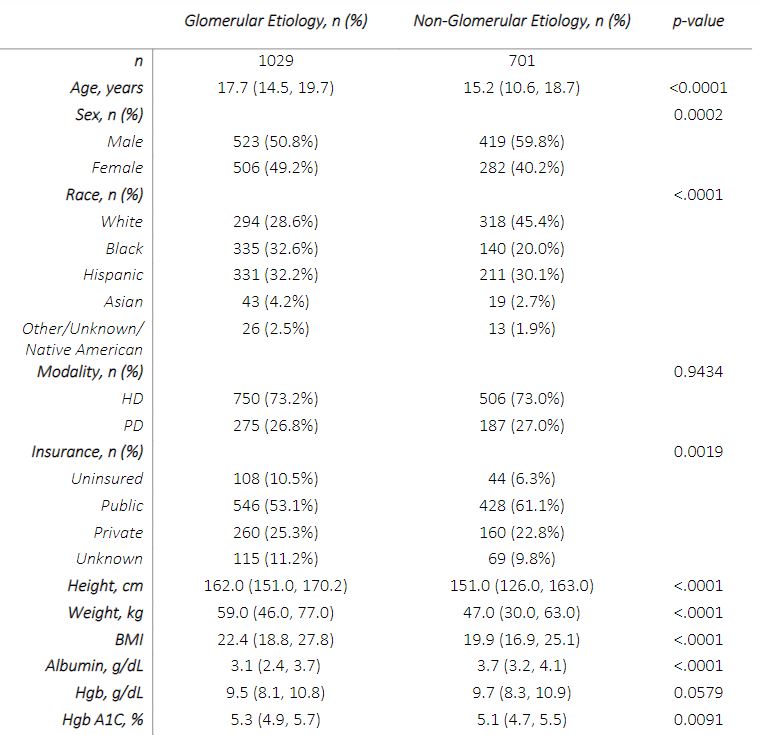Nephrology
Session: Nephrology 2
17 - Dyslipidemia in Pediatric Dialysis Patients with Glomerular and Non-Glomerular Kidney Disease
Saturday, May 4, 2024
3:30 PM - 6:00 PM ET
Poster Number: 17
Publication Number: 17.1259
Publication Number: 17.1259

Edward Zitnik, DO (he/him/his)
Pediatric Nephrology Fellow
University of California, Los Angeles David Geffen School of Medicine
Los Angeles, California, United States
Presenting Author(s)
Background: Children on dialysis have a 10-fold higher cardiovascular disease (CVD) mortality when compared to healthy children. The development of CVD in dialysis patients is in part attributed to progressive blood vessel calcification from CKD-MBD. Patients on dialysis are also more likely to have dyslipidemia, which further increases their risk of cardiovascular disease. While the prevalence of dyslipidemia in adult dialysis patients has been described, there is limited data on risk factors for pediatric dyslipidemia.
Objective: To compare the risk of dyslipidemia between children with non-glomerular kidney disease and glomerular kidney disease.
Design/Methods: 1730 pediatric patients (≤21 years) receiving maintenance hemodialysis (HD) or peritoneal dialysis (PD) with at least one lipid panel measurement were obtained from the USRDS between 2001 and 2016. Disease etiology was classified as glomerular (n=1029) or non-glomerular (n= 701) and comparisons were made across etiologies. Logistic regression models estimated the relationship between disease etiology and odds of abnormal LDL, HDL, triglyceride (TG) and total cholesterol (TC) levels drawn within 12 months of USRDS entry. Abnormal lipid values were defined according to NHLBI guidelines.
Results: Baseline characteristics of the cohort are noted in Table 1. The median (IQR) age of the cohort was 13 (17, 19.4). The majority of the cohort received HD as a primary modality and there was no difference in modality between disease etiologies. Adjusting for age, sex, race/ethnicity, dialysis modality, insurance status, BMI, and time with ESKD, glomerular disease was associated with 3.9-fold higher odds of abnormal LDL [OR 3.9 (95% CI 2.9, 5.2)], 3-fold higher odds of abnormal TC [OR 3 (95% CI 2.3, 3.9)], and 1.8-fold higher odds of abnormal TG [OR 1.8 (95% CI 1.4, 2.3)]. There was no significant difference in HDL.
Conclusion(s): Pediatric dialysis patients with ESKD from glomerular causes have higher odds of dyslipidemia than children with non-glomerular causes of ESKD. The long-term impact of this unfavorable lipid profile on CV outcomes requires further investigation.

